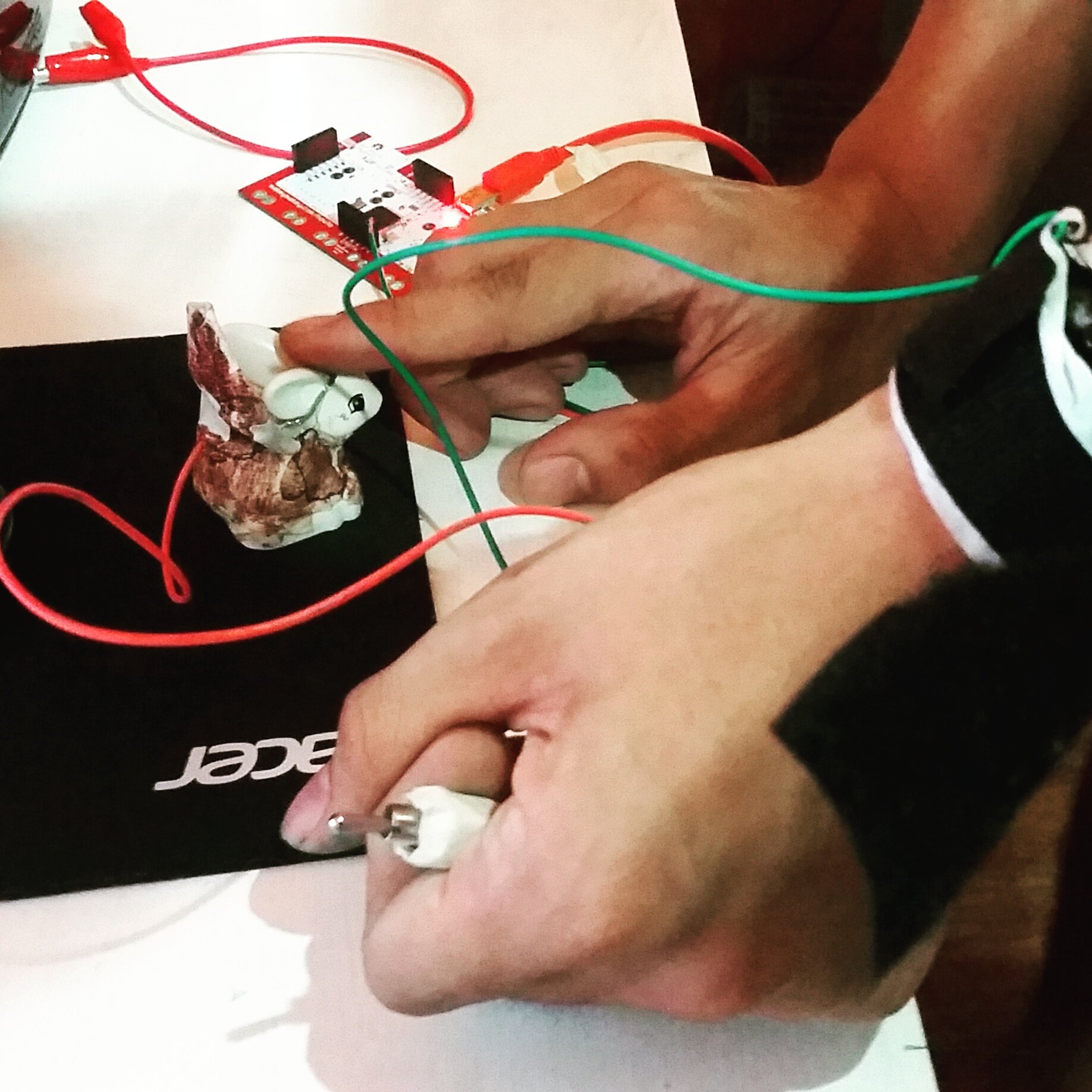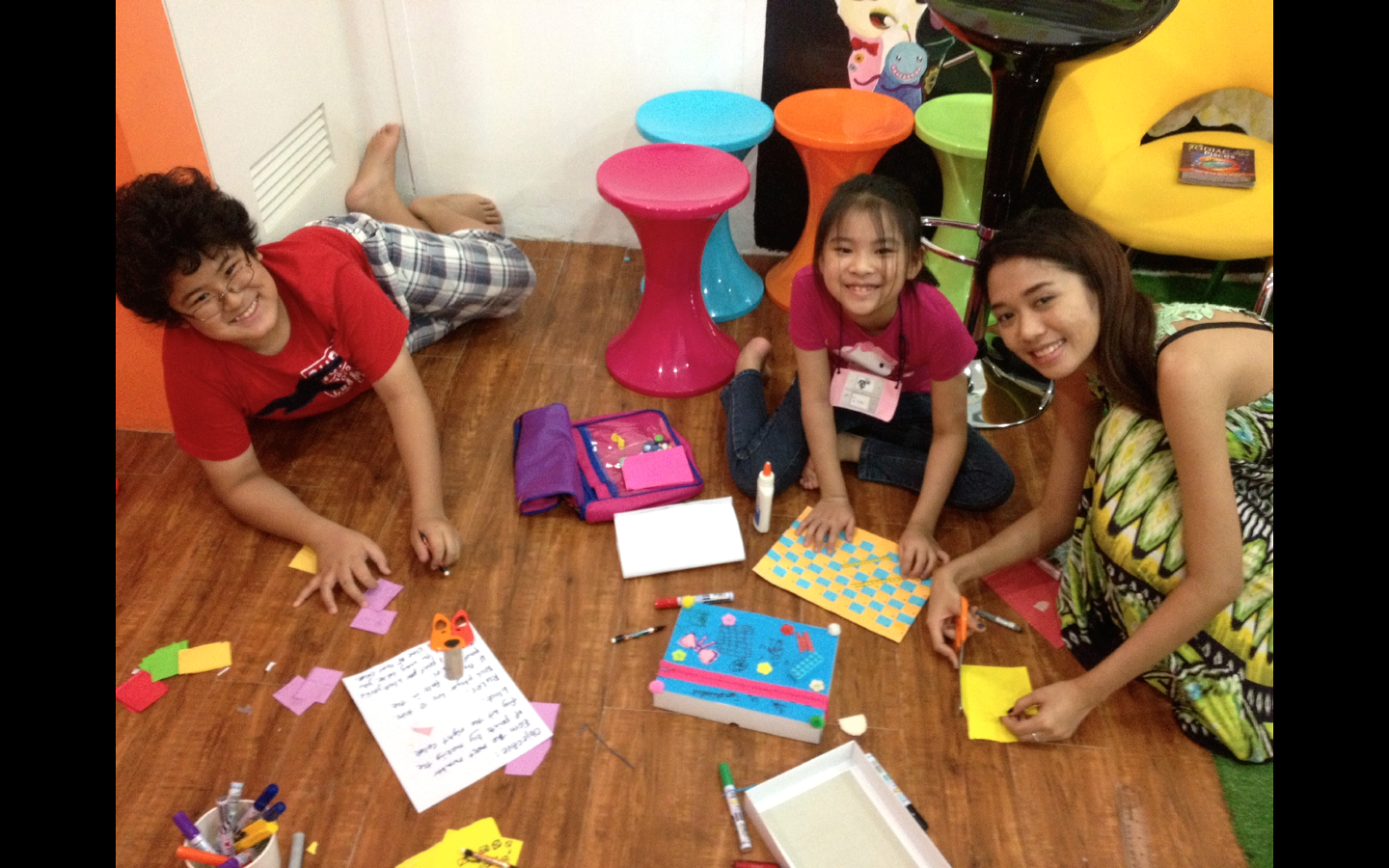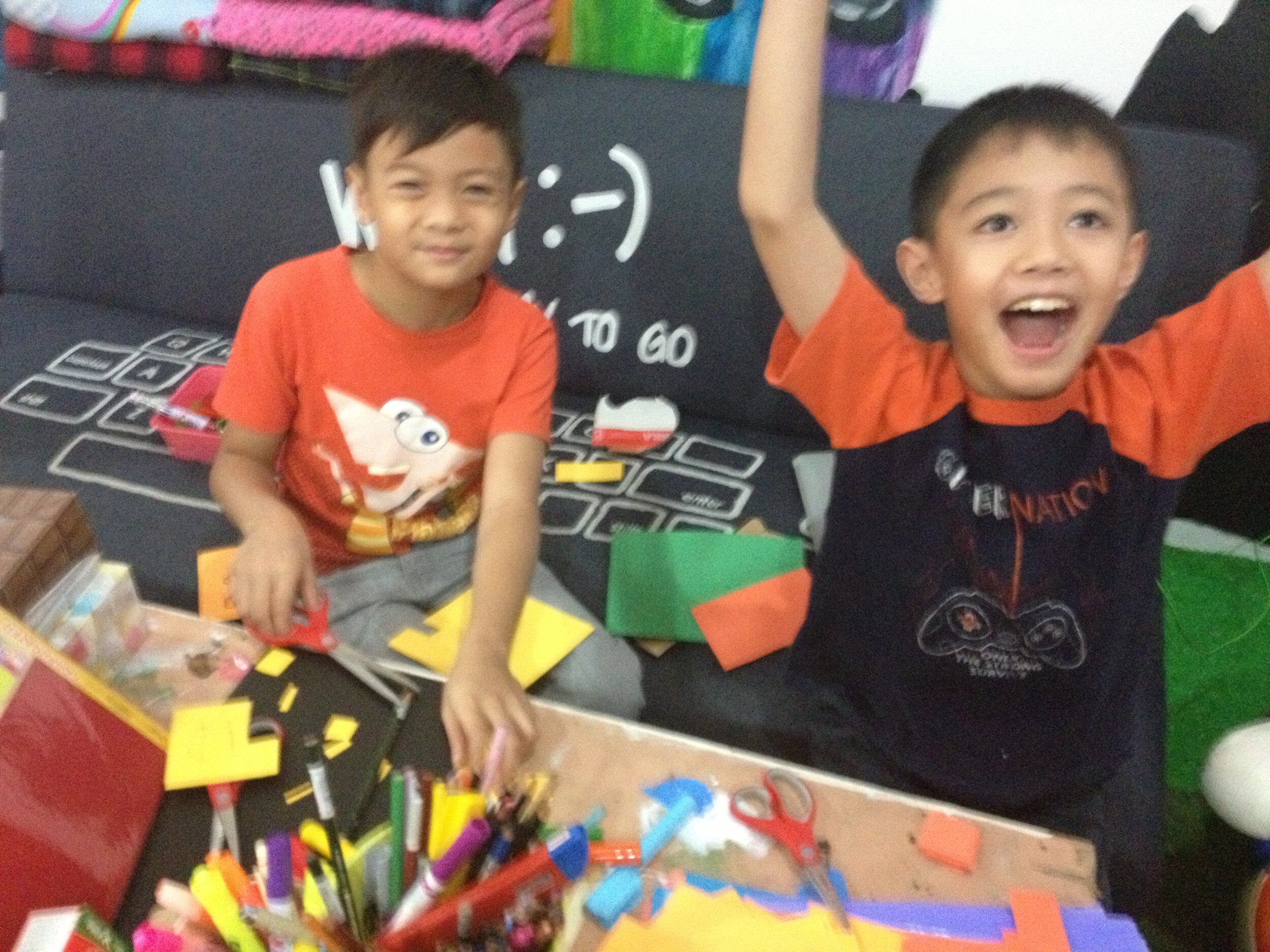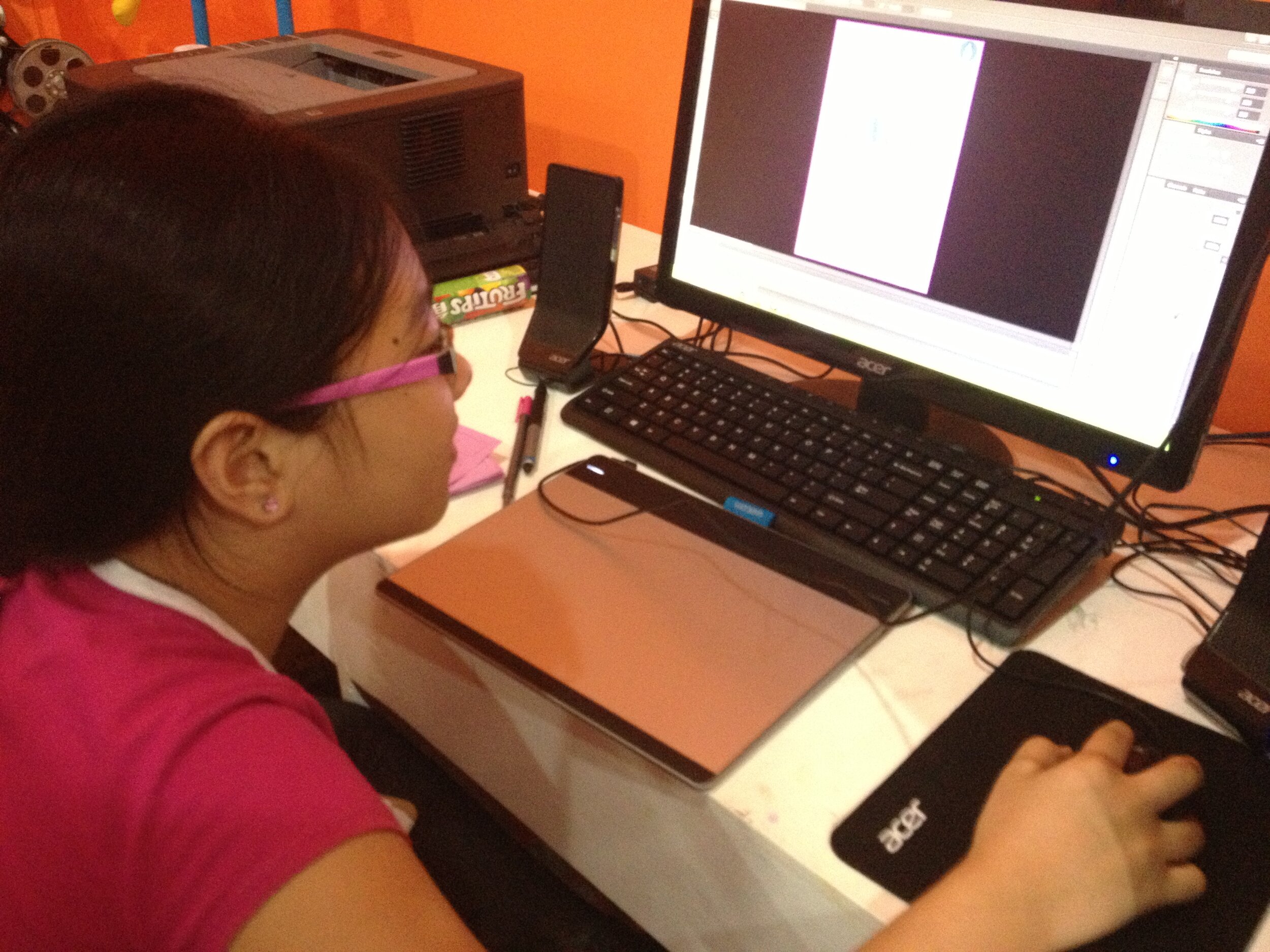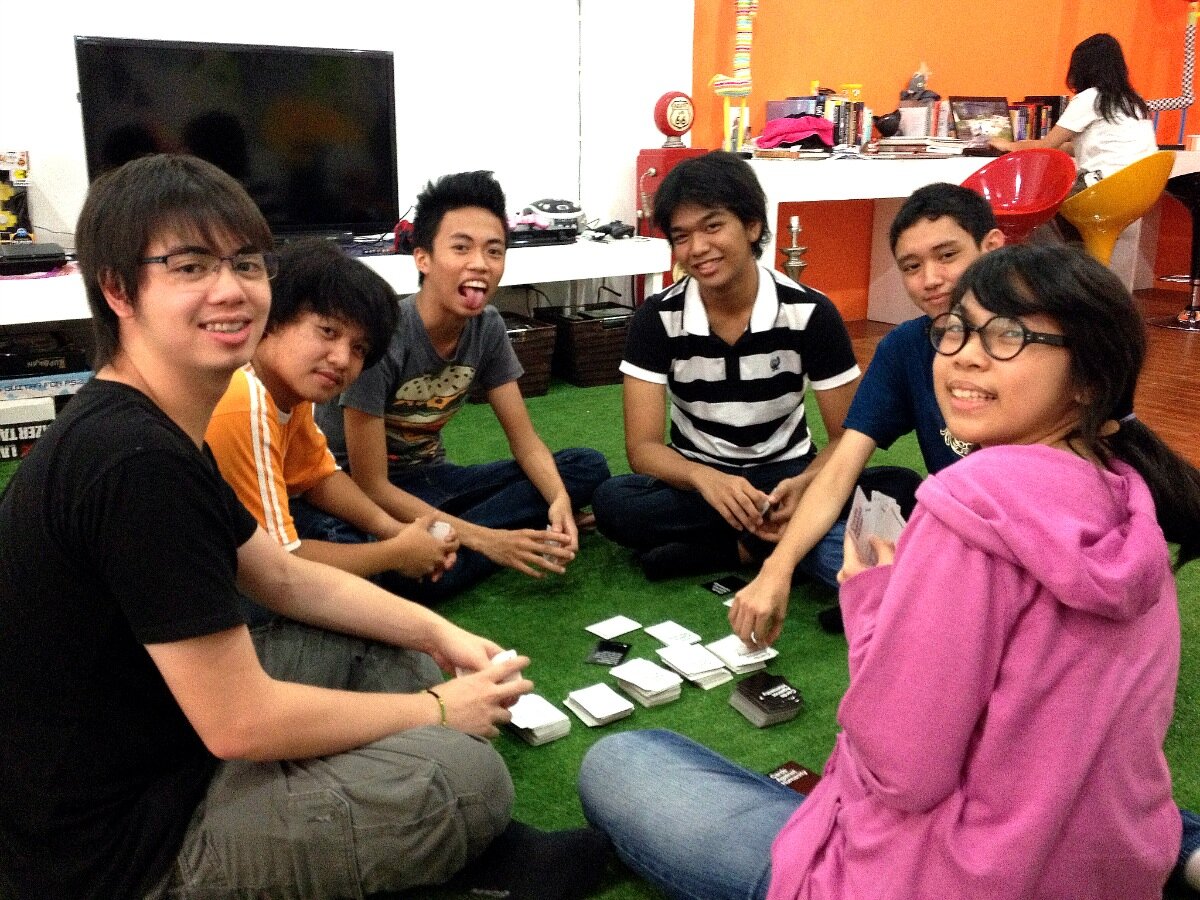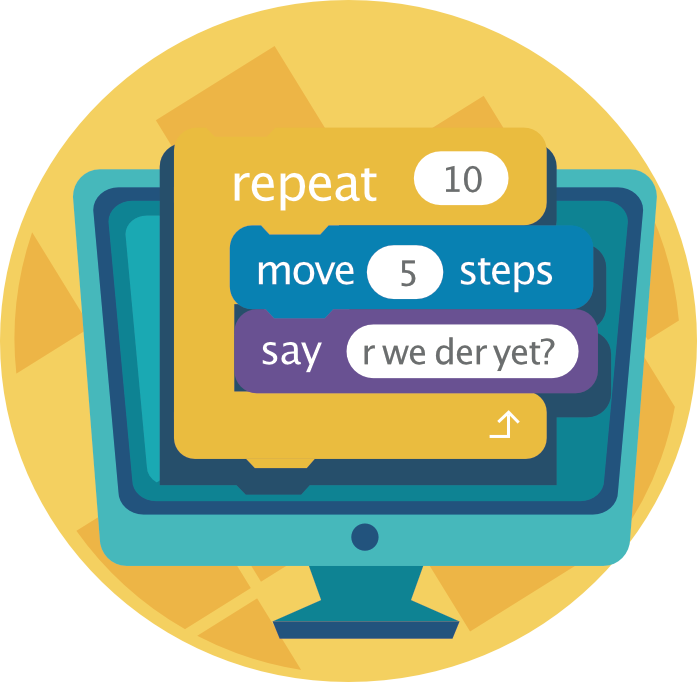
Welcome to Resistance Headquarters!
We’re glad to have you! It is here, Game Design Rookie, that you will undergo training to become a game design master.
You’ll start off by playing games. Lots of them! And you’ll discover what makes certain games challenging, fun and utterly amazing.
Then you’ll mod (modify) existing games – from Monopoly and tag to hide and go seek, bowling and Portal.
You’ll have lots of tools at your disposal to craft your own games. You may start off by creating board games and card games. Then design your own playful experiences from haunted houses and laser tag to water games and silly sports. When you’re ready, you’ll be creating your own digital games through a variety of platforms.
You’ll play test the games of your peers (and they’ll play your games, too!). And you’ll give one another feedback so you can improve on your designs.
You’ll get to join game jams, hackathons and design challenge sleepovers. Most of all, you’ll share your creations and help bring happiness and fun to kids from the Philippines and around the world. No evil pirate bunny can stop us now!!!

May 2082.
The Republic of the Philippines is overthrown. The Commonwealth of Labor and Industry, presided by her highness the Evil Pirate Bunny, intends to create a new order founded on progress and economic development. In order to accomplish this, the Commonwealth is increasing employment and production. Schools are being closed down in order for children to join the labor force. Any activity that does not yield goods and services for the global market is punishable by law. In this light, the Commonwealth has issued an edict banning play, games, candy and anything fun. Those caught engaging in these activities will be severely punished.
We need you to join our team, the Resistance, and engage in missions that will sharpen your game design skills. Together, we can restore wonder, happiness and playfulness throughout the archipelago before it’s too late!
Will you help us? We sure look forward to meeting you soon, Gamemakers!

Game Hub
Our Gamemakers at Play
Dear Parents
Hello! Thank you for allowing your child to join the Resistance and for supporting our cause.
We are an elite squad of Gamemakers, tasked with restoring playfulness, happiness and fun to kids and adults from all over the Philippines and around the world.
As part of your child’s training as a Gamemaster-to-be, she will: play games; mod games; learn how to play critically and reflectively; create objectives and define rules; develop game mechanics; and design unique experiences in physical and virtual spaces.
She will start by designing board games, card games and pen and paper RPG’s (role-playing games). Then she will learn the basics of developing digital games. Constant play testing and feedback are integral to the process. And it’s a whole lot of fun!
In this page, we outline some of the learnings in store for our future Gamemaster. You can also visit Resistance HQ and Game Hub for more information.
Domain-Specific Skills
Play
Programming
Modifying
Play Testing
Designing
Sharing
Core Values and Practices
Imagining
Each workshop provides an empty space, where participants imagine what is possible. Participants are encouraged to pursue their own interests and forget creations of their own vision and dreams.
Researching. Finding inspiration.
Participants are given the opportunity to read books, watch films, play games, surf the Web, visit museums, go on field trips, survey the works of other makers and explore Sparklelab’s library. Participants immerse themselves in a variety of media and art forms, which inspire and inform their own work.
Exploring. Tinkering. Experimenting.
In designing toys and games, creating jewelry, writing code or developing narratives, an integral part of the learning process is discovering the properties, affordances and defining characteristics of each medium.
Designing. Creating. Procedural thinking.
Participants develop preliminary blueprints for their design and create an initial prototype. Integral to the design and creation process is that of procedural thinking: outlining essential steps in the production process and ordering these steps so as to yield the intended result.
Iterating
Throughout the workshops, participants engage in an iterative design process: brainstorming and imagining; designing; developing a prototype; sharing this prototype with others; receiving feedback; and improving upon the initial design based on one’s own reflection and the feedback of others.
Inquiring
Participants are placed in situations that arouse their curiosity about the ways things work and are encouraged to raise questions – and find answers – to the underlying rules and logic that govern them.
Connecting. Sharing.
Participants share their creations with other makers in the Philippines and throughout the world. They share knowledge, insights, skills and a passion for making. They learn from one another in communities of practice. They connect through shared interests and support one another in the pursuit of their dreams.
Learning by doing
Participants learn by immersing themselves in a variety of experiences. All learning occurs in context, through trial and error.
Reading and Writing
Participants are given opportunities to understand and make meaning of, and produce: essays, poems, graphic novels, films, animations, games, music, maps, apps,blogs, tweets, visual data, code, simulations, dance, plays..
Analyzing. Synthesizing knowledge. Creative problem solving
Participants are given tools to think critically; to break down a problem, a phenomenon, or a system into its component parts so as to gain a deeper understanding of the premises that underlie it. Participants may tear a toy apart in order to examine gears, springs or motors and understand how and why movement occurs. They may evaluate a film’s narrative structure or diagnose a malfunctioning circuit. The ability to analyze is reinforced with opportunities to make connections, and through the learning’s and understandings gleaned, develop innovative solutions to a myriad of problems.
Intelligent Resourcing
Participants learn to draw upon a variety of resources in creating their projects: books, Web sites, newspaper articles, subject matter experts, their peers, and many more. They determine areas in their work where resources are needed; outline what needs to be known; map out where and how to gather the resources they need; and how to evaluate their veracity.
Failing
Participants feel that failing is safe, failing is necessary, and that success depends upon learning from failure.
Collaborating
Participants share ideas, engage in simulations and develop projects together, learning from one another throughout each workshop. They play test each other’s games, watch each other’s animations, and provide constructive feedback regarding the work of their peers. Many times, various participants assume particular roles for projects (producer, camera man, editor, actor) and work collaboratively to achieve a particular goal.








